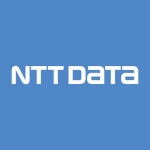
CSO at a consultancy with 51-200 employees
Easy, flexible, high-quality
What is most valuable?
Quick to set up, dynamic pricing, very good support.
What needs improvement?
Pricy for dedicated servers. The base package for fast bandwidth was more than I anticipated paying.
What other advice do I have?
They have a package where you pay an upfront cost and get locked in for a year, but the monthly cost (or per-hour cost) is much lower. Try this out if you know you'll be with them for at least a year.
Disclosure: I am a real user, and this review is based on my own experience and opinions.
AWS Cloud Specialist at a tech services company with 51-200 employees
Migrate complex environments to AWS Cloud to reduce costs, improve performance and scalability
What is most valuable?
AWS's innovations are incredible.
How has it helped my organization?
You can migrate complex environments to AWS Cloud reducing costs, improving performance and scalability.
For how long have I used the solution?
I have used AWS for five years.
What was my experience with deployment of the solution?
Yes, every platform has problems, but they are very fast at solving the problems.
What do I think about the stability of the solution?
Yes, every platform has problems, but they are very fast and they are always working to improve.
What do I think about the scalability of the solution?
No, I never encountered any issues with scalability.
How are customer service and technical support?
Customer Service:
Their priority is the customers.
Technical Support:The technical support is the best.
Which solution did I use previously and why did I switch?
No. I tried to use Azure, but I can't.
How was the initial setup?
Yes, the initial setup is not so straightforward. The concept changes and you will need to understand this.
Disclosure: I am a real user, and this review is based on my own experience and opinions.
Buyer's Guide
Amazon AWS
April 2025
Learn what your peers think about Amazon AWS. Get advice and tips from experienced pros sharing their opinions. Updated: April 2025.
849,190 professionals have used our research since 2012.
Cloud Architect at a tech vendor with 1,001-5,000 employees
Easy provisioning means quick time to market when a new environment is required
What is most valuable?
- RDS: Because of its auto-scaling, multi-zone availability, and its quick spin up of database servers.
- EC2 Servers: For the agility of server provisioning and the AMI automations.
- Lambda: Because of AI capabilities by writing functions that trigger on events.
- Route 53: For traffic engineering.
- WAF: For security and multiple other features of AWS.
How has it helped my organization?
Rolling deployments, quick time to market;
From one day deployment time, it came down to 15 minutes.
Easy provisioning means quick time to market when a new environment is required.
What needs improvement?
The console's UI could be a little better, a fluid User Experience is missing.
For example, in order to see the instance details properly, we have to scroll the description part up or down, which is not a recommended way of doing it.
For how long have I used the solution?
Three years.
What do I think about the stability of the solution?
What do I think about the scalability of the solution?
No.
How are customer service and technical support?
Excellent. 10 out of 10 for this.
Which solution did I use previously and why did I switch?
IBM Softlayer and Azure. Both are not automated to the level that AWS is automated.
How was the initial setup?
Straightforward.
What's my experience with pricing, setup cost, and licensing?
Pay per use.
Which other solutions did I evaluate?
Yes, RedHat OpenShift.
What other advice do I have?
Migrate to AWS for speed and agility, combined with its security features.
Disclosure: My company has a business relationship with this vendor other than being a customer:
Technical Architect at a tech company with 1,001-5,000 employees
Great way to enter into the cloud. Disk performance is generally the issue.
great way to enter into the cloud. disk performance is generally the issue.
Disclosure: I am a real user, and this review is based on my own experience and opinions.
General Manager with 51-200 employees
Beneficial pay-as-you-go subscription, priced well, and reliable
Pros and Cons
- "The interface of the solution is good."
What is our primary use case?
Our primary use case for Amazon AWS is for disaster recovery.
What is most valuable?
The interface of the solution is good.
For how long have I used the solution?
I have been using Amazon AWS for approximately one year.
What do I think about the stability of the solution?
Amazon AWS is a stable solution.
What do I think about the scalability of the solution?
We have three customers using this solution.
How was the initial setup?
The setup was straightforward.
What's my experience with pricing, setup cost, and licensing?
The solution is on a subscription-based model, and it is pay-as-you-go. The price could be cheaper.
What other advice do I have?
Amazon AWS is a good solution.
I rate Amazon AWS a nine out of ten.
Which deployment model are you using for this solution?
Public Cloud
Disclosure: I am a real user, and this review is based on my own experience and opinions.
Content Writer at a tech services company with 11-50 employees
Feature-rich, stable, good pricing, and responsive support
Pros and Cons
- "It has good reporting and documentation."
- "The dashboard and interface need improvement."
What is our primary use case?
We are a car company and we use this solution for our customers.
What is most valuable?
It has a lot of features to keep up with.
It has good reporting and documentation.
What needs improvement?
The dashboard and interface need improvement.
It could be more user-friendly.
For how long have I used the solution?
I have been using Amazon AWS for half a year.
We are using the latest version.
What do I think about the stability of the solution?
It's highly stable. We have not had any issues with stability.
What do I think about the scalability of the solution?
We have not explored this area yet.
My department is quite small. We have three to five people in my team who are using this solution.
How are customer service and technical support?
My experience with technical support has gone very well. They are very responsive. They are pretty cool.
Which solution did I use previously and why did I switch?
We are using OpenShift to combine two platforms.
How was the initial setup?
It's pretty hard to deploy. Our IT takes care of this area.
What's my experience with pricing, setup cost, and licensing?
We are happy with the pricing.
What other advice do I have?
Definitely, I would recommend this solution to others.
I would rate Amazon AWS an eight out of ten.
Which deployment model are you using for this solution?
On-premises
Disclosure: I am a real user, and this review is based on my own experience and opinions.
Founder & Chief Operating Officer at a tech services company with 11-50 employees
Stable, easy to use, with good support, and it is priced well
Pros and Cons
- "It's very easy to use."
- "Integration with in-house applications could be simplified."
What is our primary use case?
The primary use case of this solution is for hosting your infrastructure.
What is most valuable?
It's very easy to use.
What needs improvement?
The activation process can be improved. Sometimes, the activation takes a lot of time. There are many components of the infrastructure.
Integration with in-house applications could be simplified.
For how long have I used the solution?
We have been dealing with Amazon AWS for one year.
We are using the latest version.
What do I think about the stability of the solution?
It's a stable solution.
What do I think about the scalability of the solution?
It is a scalable product. We have 30 users in our organization.
We plan to continue to use Amazon AWS.
How are customer service and technical support?
We have never had a problem with technical support.
How was the initial setup?
There is no installation for this solution. It's a cloud solution.
What's my experience with pricing, setup cost, and licensing?
There is a cost for any components you get.
AWS is not an expensive product.
What other advice do I have?
I absolutely recommend this product.
I would rate Amazon AWS an eight out of ten.
Which deployment model are you using for this solution?
Public Cloud
Disclosure: I am a real user, and this review is based on my own experience and opinions.
Developer at a tech company with 51-200 employees
A bit pricey cloud service, but with good features, and worth the money.
Valuable Features:
- Amazon Web Services offer a very low pricing option based on usage, with no up-front payment.
- Amazon Web Services can be used as a Content delivery network, as Amazon has multiple data hosting centers spread across the globe.
- Amazon Web Services is a highly secure durable technology platform, for hosting all your applications over the cloud. The AWS storage facility is very scalable and grows and shrinks as per your needs. You only pay for the exact usage and not more.
- AWS is a not dependent on any programming language or any kind of operating system platform. You are free to choose the development platform or programming model that is suitable for your application and business. You can also decide what services you want to use and how to use them. This takes the burden of focusing on infrastructure off your shoulders.
- There’s less IT infrastructure staff to manage.
Room for Improvement:
- Though not very often, Amazon services are known to go down once in a while. If you are running highly intensive businesses off Amazon, you might end up losing a big chunk of your revenue due to AWS break downs. You might have to think of alternative backup options as well.
- The other thing to keep in mind is the cost factor. Though the prices are not sky high, if you are a startup then you have to answer the big question: Is cloud comparatively a cheaper option or is it more expensive?
- Initial learning curve, sometimes takes a bit of time and deters quite a lot of people from doing their business with AWS, so make sure you spend sometime to ramp up with AWS.
Other Advice:
A good cloud service that takes care of all the back end infrastructure management and administration work off your hands. The pay-as-you-go option is very suitable for most of the organizations. Prices are a bit higher when compared to hosting your service over your own hardware. However, you get the benefits of having your application over a cloud. The auto-scale feature is something worth the money, as you don't have to worry about deploying more servers when there is a high demand during peak times.
Disclosure: I am a real user, and this review is based on my own experience and opinions.
Buyer's Guide
Download our free Amazon AWS Report and get advice and tips from experienced pros
sharing their opinions.
Updated: April 2025
Popular Comparisons
Microsoft Azure
Oracle Cloud Infrastructure (OCI)
Akamai Connected Cloud (Linode)
Google Cloud
Alibaba Cloud
Google Firebase
SAP S4HANA on AWS
Nutanix Cloud Clusters (NC2)
DigitalOcean
SAP HANA Enterprise Cloud
Equinix Metal
Tencent Cloud
Google Compute Engine
NTT Cloud
Skytap Cloud
Buyer's Guide
Download our free Amazon AWS Report and get advice and tips from experienced pros
sharing their opinions.
Quick Links
Learn More: Questions:
- Gartner's Magic Quadrant for IaaS maintains Amazon Web Service at the top of the Leaders quadrant. Do you agree?
- PaaS solutions: Areas for improvement?
- Rackspace, Dimension Data, and others that were in last year's Challenger quadrant became Niche Players: Agree/ Disagree
- Does anybody have experience negotiating the terms and conditions with AWS?
- Which would you prefer - Amazon AWS or IBM Public Cloud?
- Do you have an Amazon AWS certification, and do you think it is important to earn one?
- Would you recommend Amazon AWS to cloud computing beginners?
- Which Amazon AWS features and services do you use the most often and why?
- How does Amazon compare to alternative cloud solutions?
- What are some smart ways to streamline AWS data transfer costs?
















What I like at EC2 is the easy creation and termination of servers and that it allows experimentation without too much cost. It has a lot of services to choose with different OS options. Also, I like the simplicity and the elasticity. But EC2 is expensive and I dislike the hidden charges and the contract terms.